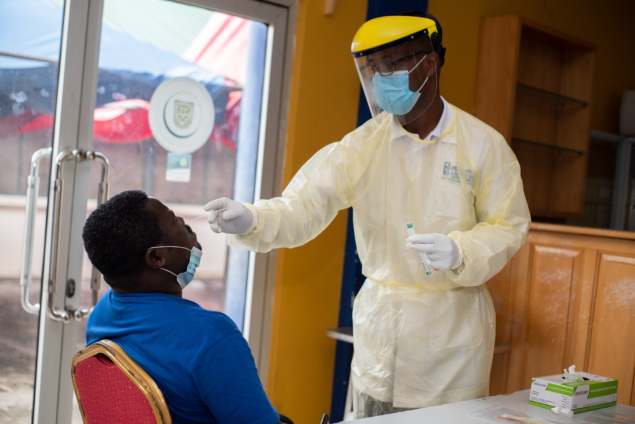The Covid-19 pandemic is a global health crisis, which has challenged health standards worldwide. Ghana has had its share of the coronavirus pandemic and is working hard to get a grip on the situation.
Safety Communication Consult caught up with the Executive Vice President and Head of Gold Fields West Africa, Alfred Baku, to share how leadership has ensured health and safety remain a priority during the pandemic.
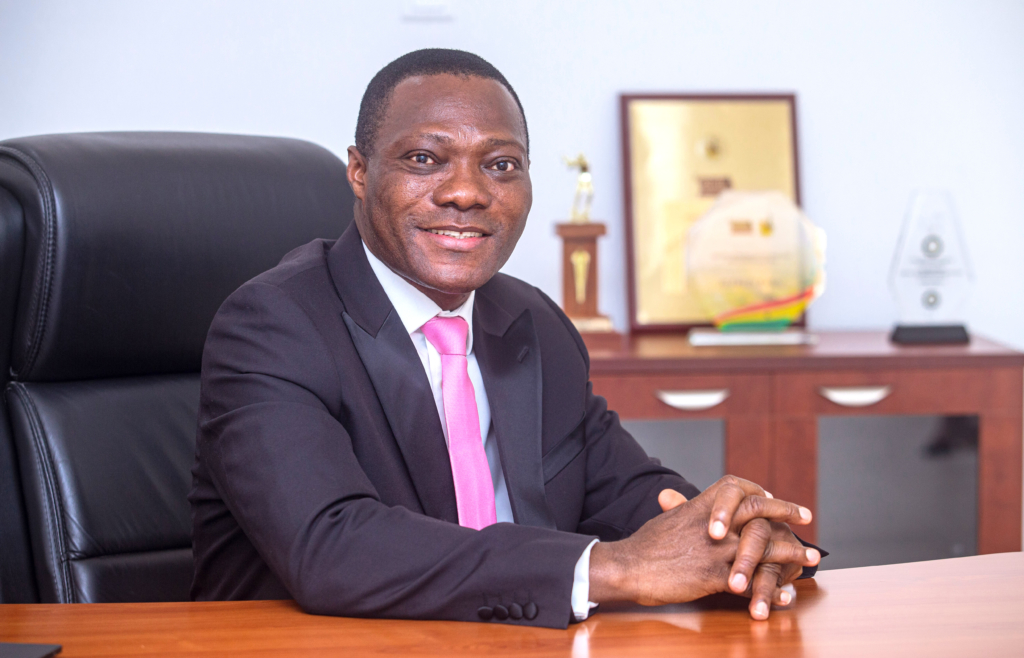
As the global community is finding ways to control the Covid-19 pandemic, what has been your company’s strategy to contain the spread of the virus at the workplace?
Prior to Ghana recording its first two COVID-19 cases in March 2020, Gold Fields Ghana had developed a comprehensive response plan to contain infections and spread of the virus at the Tarkwa and Damang gold mines and in our host communities in the Western Region.
The strategy identified risk levels and provided mitigation measures for each risk, ranging from screening to quarantine and isolation. As part of this strategy, we have ensured that our mines are well equipped to adequately manage suspected and confirmed cases.
We also constituted a team that is working closely with the Health Directorates of Tarkwa-Nsuaem and Prestea Huni-Valley municipalities on broad-based measures to prevent infections within our mines’ host communities.
Beyond the structures and measures instituted, we have so far committed over US$1.2 million to the fight against Covid-19 at our mines and in our host communities. This also includes supporting government’s actions to mitigate the impact of the virus in the country.
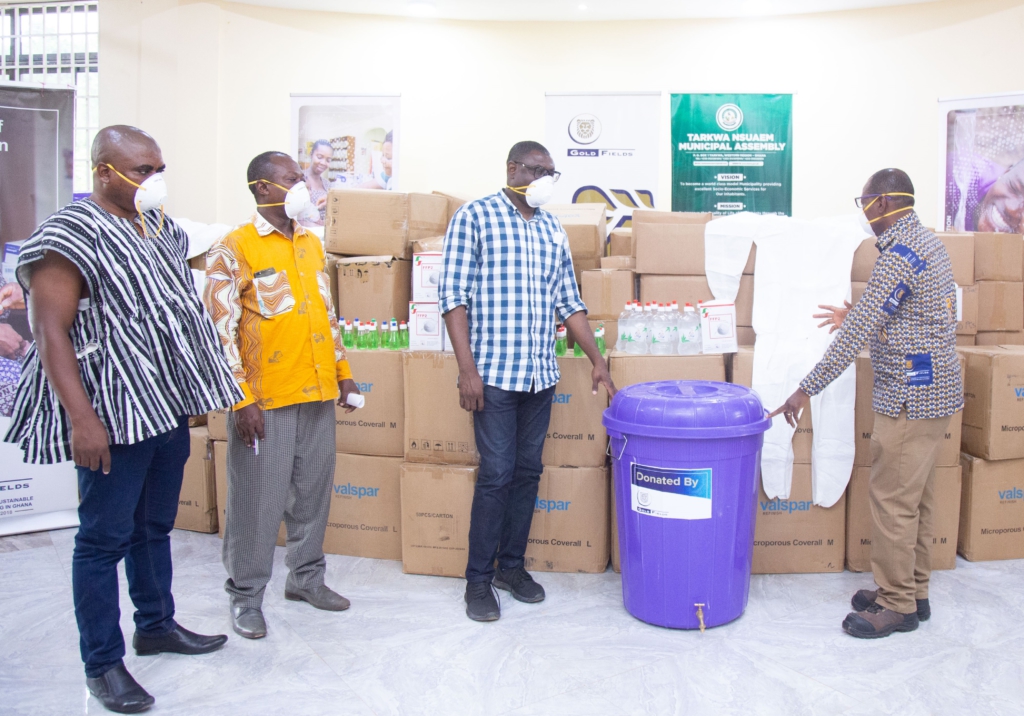
The International Labour Organisation’s (ILO) theme for this year’s World Day of Safety and Health at Work was on violence and harassment; but the ILO shifted its attention to COVID-19 after it was declared a pandemic. What is the level of involvement of top management at your company in this regard?
Gold Fields never downplayed the impact of the COVID-19 pandemic. Our top management and board members have been involved from the onset, exploring innovative ways to successfully manage the situation. Our objective is to avert a major impact on our employees, our operations and our host communities.
The first step was to immediately set up a COVID-19 Crisis Management Committee (CMC), which comprised of executives and key managers, to develop our COVID-19 response strategy.
The CMC also directed the strict implementation of the mitigation measures implemented at the workplace to keep employees safe and sustain our business.
Due to our swift response and urgency in tackling this pandemic, we are pleased to note that we have not recorded any death, and our operations in the region have not been affected.
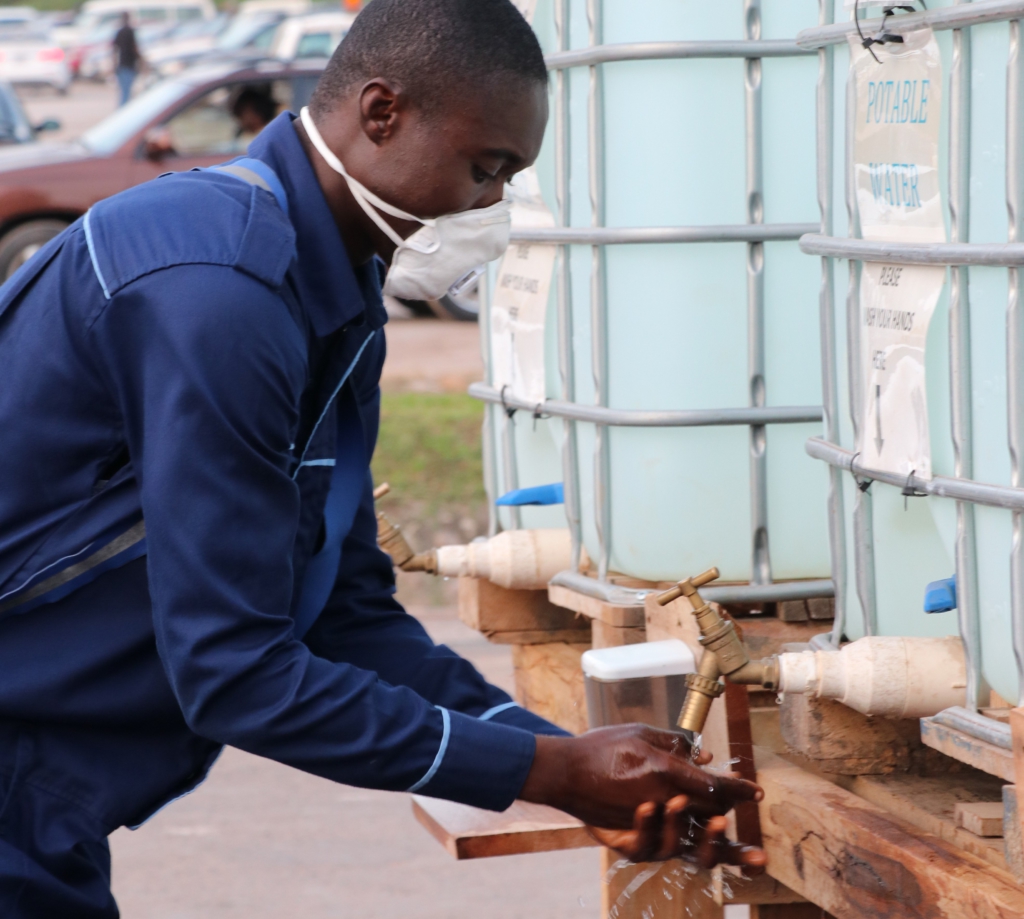
Describe your emergency management policy as a company. What experiences or lessons have you learnt from this pandemic as a company?
We have in place case-specific crisis management policies and guidelines to enable us successfully tackle all emergencies at our mines. Regarding COVID-19, our five-level response strategy, which was developed following a thorough risk assessment, considered various business scenarios based on the impact of the pandemic on our employees, gold production and host communities.
The five levels identify potential risks and the severity of the impact of each risk. The strategy also provides measures to prevent each risk or mitigate its impact. Some of the key measures instituted at the mines include screening all employees and essential visitors, mandatory wearing of facemasks, provision of handwashing facilities and hand sanitisers, cell bussing system, strict social/physical distancing protocols, as well as flexible work schedules.
When we recorded the first case at our Tarkwa mine, we swiftly activated our COVID-19 management protocol, which include contact tracing, isolation,quarantine and case management at our well-equipped Tarkwa mine hospital. We have further enhanced our COVID-19 management protocol with ongoing mass testing of employees. We have also set up three isolation centers with a total capacity of 85 beds at our Tarkwa and Damang mines.
The key lessons from this experience is that, the health and safety of employees cannot be taken for granted. In addition, taking swift and decisive action, as well as investing in the safety of the workforce is essential for business sustainability. We are well aware of this fact, and that is why we continue to invest significantly in the safety of our employees.
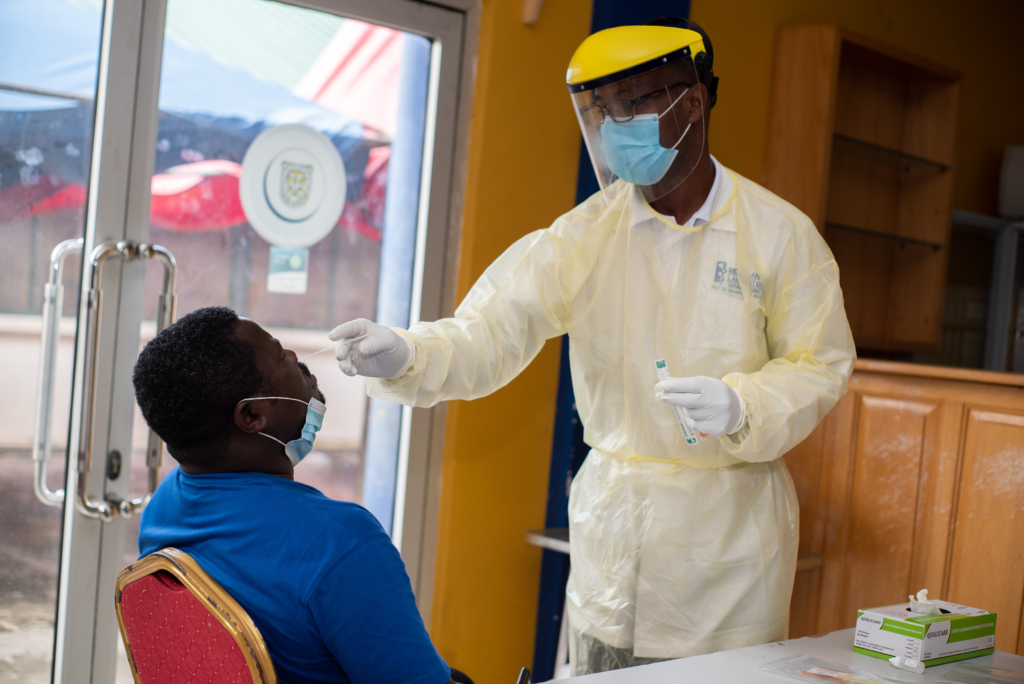
What are the major challenges your company is facing now in upholding safety measures, and how are you working to overcome them?
Safety is our number one value, which is why we have boldly declared that if we cannot mine safely, we will not mine. We understand that in order to uphold safety measures and achieve our strategic objective of zero harm at the workplace, we need to get all employees involved.
In addition to our various safety procedures and campaigns at the mines, we introduced the Courageous Safety Leadership programme (CSL) in 2020 to empower employees to boldly speak up about hazards and unsafe practices. The CSL programmeencourages all employees, irrespective of their level, to be safety leaders.
Through these campaigns and programmes, we are building a safety conscious workforce that cares about their own safety and that of their colleagues. This safety culture has been very helpful in the COVID-19 fight as employees continue to act responsibly by swiftly reporting symptoms and adhering to safety protocols.
Describe your company’s corporate social responsibility (CSR) on humanitarian relief policy in times of crisis.
Gold Fields is committed to the safety and wellbeing of members of our 19 host communities. It is also important to note that the majority of our employees and their families live in the host communities. We have a strategy in place to adequately support our communities during a crisis. The strategy involves collaborating with local government institutions and engaging traditional leaders on the appropriate means to reach and provide relief to affected communities and individuals.
For instance, we focused on our host communities in our response to the COVID-19 pandemic. We engaged the municipal health directorates and community leadership to help bring the needed relief to health workers and community members. We donated thousands of facemasks, hand sanitisers, gloves, protective gowns, goggles, test kits, hand held thermometers, as well as other preventive items. We also set up several handwashing facilities in our host communities to encourage regular handwashing.
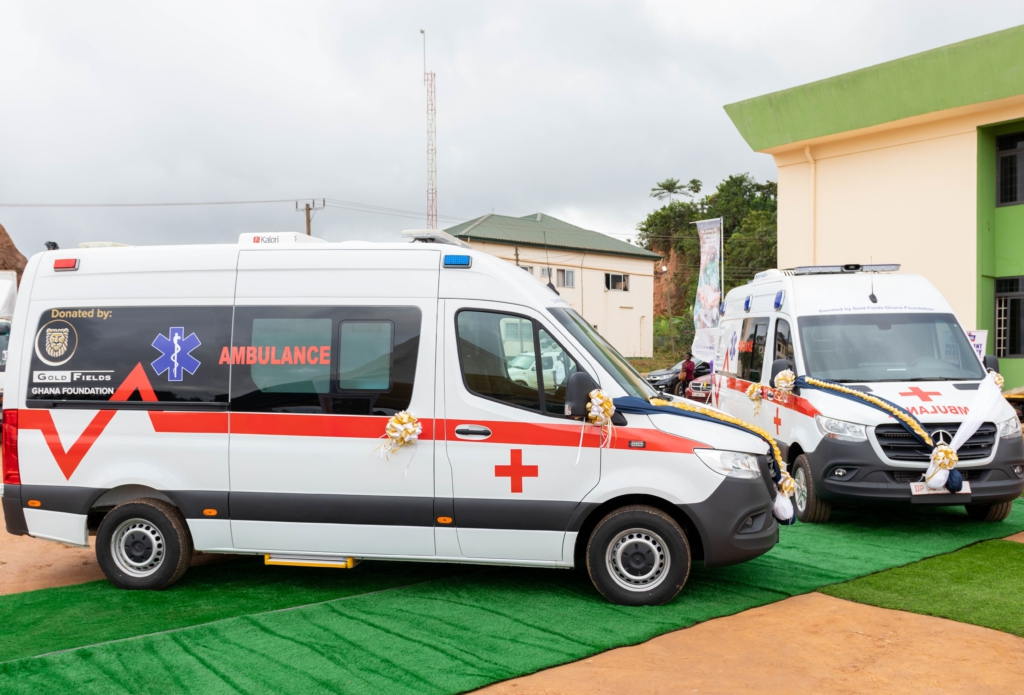
Two brand new fully equipped ambulances, which cost $284,000, were also donated to the ApintoGovernment Hospital and the Tarkwa Municipal Hospital to boost emergency healthcare and COVID-19 response. It is worth noting that some of the facemasks we donated were produced locally by entrepreneurs in our host communities. Such support was vital to small local businesses that were struggling due to the pandemic.
We also extended support to host community schools that remained open, providing them with much-needed facemasks and other PPE. We also embarked on intensive awareness creation on COVID-19, including campaigns on community radio stations.
In Accra, we donated seven disinfection chambers to the Ga Traditional Council to support efforts to contain the spread of COVID-19 in communities. The fully automated chambers are fitted with handwashing facilities and sanitising systems that disinfect the whole body. The seven locally built disinfection chambers cost ¢150,000.
Explain if you would lay off employees in difficult times such as this or would rather brainstorm with employees both seniors and juniors to find practical ways to improve operations to restore your revenue inflow?
Our employees are our most valuable asset and as such, we invest significantly in their training and development to enable them to contribute towards the achievement of the company’s strategic objectives. As part of our response strategy, we consulted and engaged our stakeholders extensively to ensure that the best possible mitigation actions are taken at every stage to protect our employees and ensure business continuity.
Even though, some employees proceeded on leave and others worked from home to allow for proper observation of social/physical distancing at the workplace, we are pleased to note that no employeewas laid off due to COVID-19. We have been able to sustain our operations during these challenging times due to the hard work and dedication of our employees, and we are grateful to them.
What do you think the government and regulatory bodies should do to ensure safety and health at the workplace?
The government and regulatory agencies must strengthen their enforcement and monitoring of the relevant workplace health and safety regulations. The government must ensure that all industries and businesses, both large and small, are regulated by safety and wellbeing laws to ensure the total protection of employees.
It should also be mandatory for all businesses to have a health and safety policy, which clearly spells out how the employer intends to manage health and safety issues. Regulators should conduct a frequent workplace health and safety audits, and adopt strategies to engage employees on health and safety practices at the workplace.
Latest Stories
-
We don’t operate investment platform – GNPC
39 seconds -
Ghana Fact-checking Coalition condemns disinformation on voting by Wontumi FM broadcaster
2 mins -
IFRS 17 will augment and accelerate NIC’s efforts to implement risk-based capital – Deloitte
4 mins -
IFRS 17 is one of biggest changes to financial reporting standards in insurance industry – Deloitte
18 mins -
Enimil Ashon: Whose polls do you believe: ‘Global Info or Prof Sarpong?
21 mins -
Ghana Climate Innovation Centre welcomes 25 businesses into Cohort 10
25 mins -
ADB will continue to enhance customer value and service experience – Managing Director
27 mins -
Colour Cure Exhibition highlights art’s role in healing and advocacy
29 mins -
GPL 2024/25: Aduana FC sack coach Yaw Acheampong after poor run
32 mins -
John Dumelo pays ¢10,400 in outstanding fees for visually impaired law student facing deferral
33 mins -
CHRAJ clears Rev. Kusi Boateng of conflict of interest, says he doesn’t own 2 passports with different names
37 mins -
We’ll restore hope by cutting down taxes and avoiding unreasonable borrowing – Ato Forson
41 mins -
14th Edition of Tech in Ghana Conference launched in Accra
42 mins -
Manifesto clash: NPP, NDC spar over water, hygiene, sanitation and climate change
48 mins -
Ellembelle MP constructs new health facility at Santaso to serve several communities
52 mins

